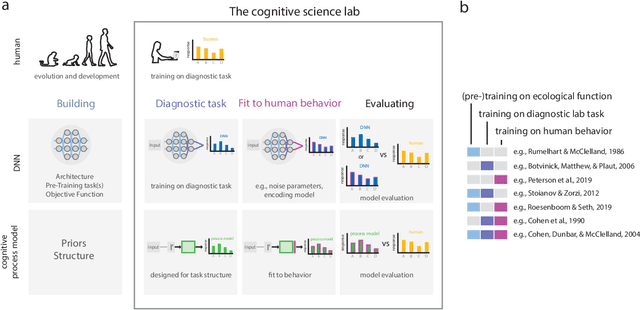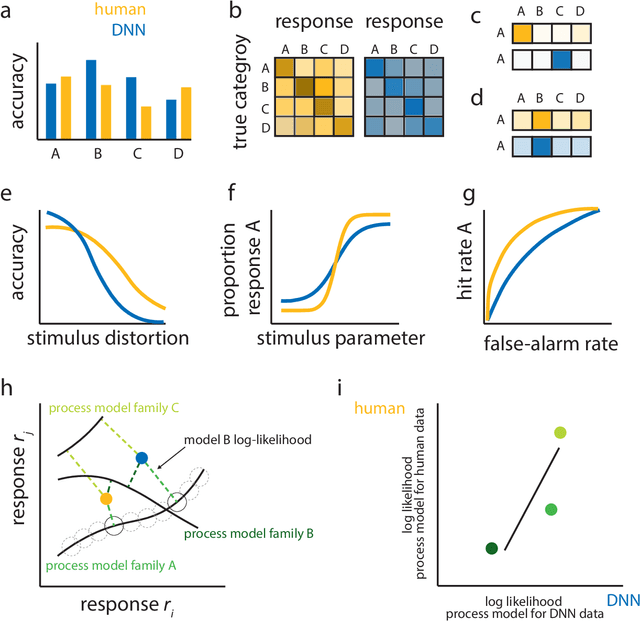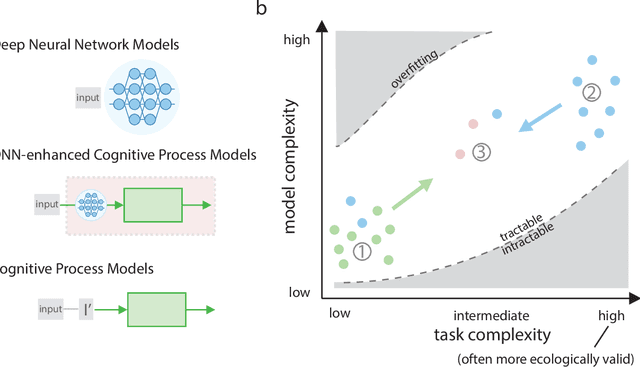A neural network walks into a lab: towards using deep nets as models for human behavior
Paper and Code
May 02, 2020


What might sound like the beginning of a joke has become an attractive prospect for many cognitive scientists: the use of deep neural network models (DNNs) as models of human behavior in perceptual and cognitive tasks. Although DNNs have taken over machine learning, attempts to use them as models of human behavior are still in the early stages. Can they become a versatile model class in the cognitive scientist's toolbox? We first argue why DNNs have the potential to be interesting models of human behavior. We then discuss how that potential can be more fully realized. On the one hand, we argue that the cycle of training, testing, and revising DNNs needs to be revisited through the lens of the cognitive scientist's goals. Specifically, we argue that methods for assessing the goodness of fit between DNN models and human behavior have to date been impoverished. On the other hand, cognitive science might have to start using more complex tasks (including richer stimulus spaces), but doing so might be beneficial for DNN-independent reasons as well. Finally, we highlight avenues where traditional cognitive process models and DNNs may show productive synergy.
 Add to Chrome
Add to Chrome Add to Firefox
Add to Firefox Add to Edge
Add to Edge